#Naval Nuclear Laboratory
Explore tagged Tumblr posts
Text
🟦HOUSE OF HORRORS, ATTACK ANALYSIS - ISRAEL REALTIME
Connecting to Israel in Realtime
⭕HIGH RISE APT BUILDING IN YAVNE.. apparently HIT by a SUICIDE DRONE from Yemen. No alarms, the drone apparently flew under the radar - literally. Significant damage to a penthouse apartment, no injuries.
🔹SYRIA’S HOUSE OF HORRORS.. The regime prison-torture center-slaughter house info has been coming out, including TODDLERS being held, mass torture facilities, mass body destruction and disposal facilities. Commentators noting with HUNDREDS OF THOUSANDS disappearing into the facility - there is NO UN CONDEMNATION, NO INTERNATIONAL COURT OF JUSTICE indictment, no INTERNATIONAL CRIMINAL COURT warrants, no claims of genocide on a regime which both mass tortured and chemical weapon bombed its opponents. Hmm.
🔹SYRIAN REBELS.. Some Syrian rebels declare: this is just the beginning. Taking over Jerusalem and liberating Gaza are among the goals. A reminder that among the rebel organizations are reformed Al Qaeda.
🔹IRAN.. The American administration expresses concern that the collapse of the Assad regime could increase the pressure on Khamenei, regarding giving the green light to the production of a nuclear bomb.
🔹RED ON RED.. JENIN - The Palestinian Authority announced yesterday an ultimatum to the terrorists of the five terrorist groups in the Jenin camp to hand themselves in and their weapons, by midnight last night.
This morning the Palestinian Authority sent many forces into the city, including forces from the "Commando Unit 101" and snipers, exchanges of fire have been going on for hours between the terrorists and the mechanisms. PA snipers were deployed. The IDF is not involved.
🔹ANALYSIS - IDF ATTACKS ON SYRIA.. (The Arab Desk). The air force is in a blitz of airstrikes in the entire Syrian airspace from south to north, fighter jets in attack waves destroy strategic weapons that may be directed towards us, from ground-to-ground ballistic missile depots, chemical weapons, research laboratories, anti-aircraft systems, fighter planes and naval vessels, helicopters and more. The IDF is simply destroying very large chunks of the (former) Syrian army's capabilities.
🎗️HOSTAGE DEAL NEWS.. Report: Hamas handed over a list of hostages to be offered for trade / release, including 4 with American citizenship. Noting some hostage advocacy organizations are demanding no deal that doesn’t include ALL live hostages.
#Israel#October 7#HamasMassacre#Israel/HamasWar#IDF#Gaza#Palestinians#Realtime Israel#Hezbollah#Lebanon#🎗️
19 notes
·
View notes
Text
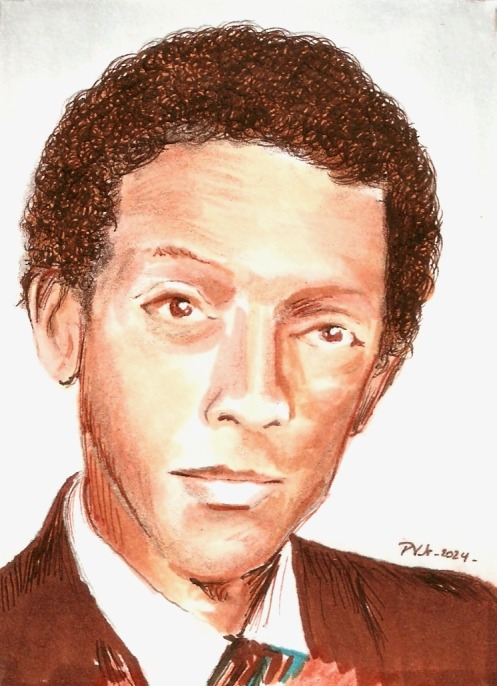
"I had no role models because nobody ever publicized them, not that they didn't exist. George Washington Carver and Percy Julian and others had preceded me in science, but nobody ever publicized their accomplishments, and, therefore, many of the minority students didn't know that they had a future in science because they figured it was something that was not for them."
After a bit of time away from this project to make room for convention appearances and other shows, I now return to the subject with a look at the life and accomplishments of physicist George Robert Carruthers, on this, what would have been his 85th birthday.
Born in 1939 Cincinnati, Carruthers's father was himself a civil engineer at Wright-Patterson AFB, but the family soon moved to the more rural location of Milford, Ohio. Carruthers was described as quiet and focused --intensely interested in space travel stories and comic books (my people!), and a devourer of the science articles in Collier's magazine (even penning a fan letter to Dr. Werner Von Braun, to which he received an unexpected and encouraging personal reply). At the age of ten Carruthers built his first telescope, constructed from lenses he obtained by mail order. After George's father died in 1952, the family moved to Chicago but his fascination with spaceflight did not diminish. Encouraged by wonderfully observant teachers, he eventually graduated from the University of Illinois, Urbana-Champaign in 1960, then earned his MS in in nuclear engineering in 1962, and then landed his PhD in aeronautical and astronautical engineering in 1964.
While working towards his PhD, Carruthers worked as a researcher and teaching assistant, studying plasma and gases. In 1964, Carruthers took a postdoctoral appointment with the Naval Research Laboratory (NRL) in Washington, D.C., focusing on far ultraviolet astronomy. In 1969 he received a U.S. patent for inventing a form of image converter; an instrument that detects electromagnetic radiation in short wavelengths. In 1970 his invention recorded the first observation of molecular hydrogen in outer space (which he described as "a very big deal at the time.")
Far and away (literally), Dr. Carruthers's greatest contribution to science is his development and construction of an ultraviolet electronographic telescope, which became the first (and to date still the only) astronomical instrument sent to the surface of the Moon; more properly known as the Far Ultraviolet Camera/Spectrograph. The camera was brought along on the Apollo 16 mission in 1972, set up to observe the Earth's geocorona (outermost atmosphere) from a vantage point never before possible. A short time later a variation on this very same camera was brought aboard Skylab to photograph the near approach of Comet Kohoutek, the first instance of a comet being recorded in ultraviolet. A flight backup of the Apollo 16 instrument, along with the original mission film canister, stood for many years as part of the lunar lander exhibit at the National Air & Space Museum, until it was later transferred to a more protected exhibit to guard against corrosion.
Dr. Carruthers's success and notoriety from the Apollo mission led to his creation of the Science & Engineers Apprentice Program, offering disadvantaged high school students the opportunity to work with scientists at the Naval Research Laboratory. His research into ultraviolet spectroscopy continued --in 1991 one of his ultraviolet cameras was used in multiple experiments aboard the Space Shuttle Discovery (STS-39). He retired from the NRL in 2002 and in 2003, was inducted into the National Inventor Hall of Fame. In 2013 was awarded the National Medal for Technology and Innovation by President Barack Obama. Dr. Carruthers died on Christmas Day, 2020.
10 notes
·
View notes
Text
There are a lot of wonderful reflections on President Carter but it's also important to remember Lt. James Earl Carter (US Navy) as well.
Lt. Carter, graduate of the US Naval Academy join the submarine forces, earned his "dolphin", worked with then Capt. Rickover (Father of the Nuclear Navy), but of all his time in the Navy, his work at the NRX reactor at the Chalk River Laboratories is perhaps the most bad ass thing he did during his time with the Canoe Club.
Fair winds and following seas Sir.
6 notes
·
View notes
Text
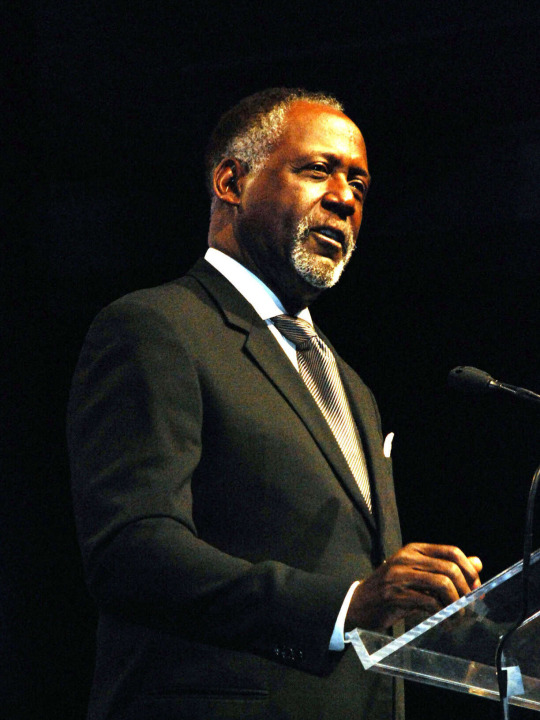
Robert Johnson Omohundro (June 17, 1921 - May 15, 2000) was one of a select few Black scientists and technicians to work on the Manhattan Project and thus contribute to the development of the atomic bomb during WWII. He was born in Norfolk to Henry Omohundro and Brownie Pierce Omohundro, he had 5 siblings.
He graduated from Booker T. Washington High School in Norfolk and earned a BS in Mathematics and an MS in Physics from Howard University. After graduation, he worked as a radio tester with the Western Electric Company.
His contribution to the atom bomb project was his work as a mass spectroscopist. Mass spectrometry is a common technique that scientists use to help identify particles in samples by their mass. During WWII he worked at a secret facility in Arizona and was responsible for developing devices to locate and measure radiation emissions from atomic warheads. These devices were used long after WWII by the International Atomic Energy Agency in airports around the world to detect clandestine transfers of fissionable material and portable neutron detectors.
He applied the techniques of nuclear physics honed during his work on the Manhattan Project to developing technology at the Naval Research Laboratory in DC. He was noted for his development of devices that prevent the propagation of plutonium at airfields. He continued his WWII research by designing more advanced devices for radiation detection from nuclear warheads. He obtained two patents in the field of nuclear physics. Throughout his career, he authored and co-authored 40 scientific articles.
He was a member of the American Physical Society, the Research Society of America, and Alpha Phi Alpha Fraternity. #africanhistory365 #africanexcellence #alphaphialpha
0 notes
Text
Good Omens is a story about the Cold War.
The writing and publication of the novel Good Omens coincides rather neatly with the late Cold War (the fall of the Berlin Wall and German Reunification taking place in 1989-1990) and the authors would have both grown up and spent their young adulthood during the period of the Cold War.
In Good Omens, two global powers face off in a long-lasting “quiet” conflict in which outright action would be mutually destructive and would at worst lead to universal loss of human life. This is a storyline upon which variations exist in popular perceptions of the Cold War and works of fiction on the subject, including the satirical film Dr Strangelove. (It is perhaps relevant to add that at one point Aziraphale and Crowley were imagined both being played by Peter Sellers, which is of course a central aspect of Dr Strangelove, in which Sellers plays three separate roles.)
Aziraphale and Crowley are also paralleled with Cold War agents nearly every time they appear in public together. When Aziraphale and Crowley feed the ducks at St James Park, it is mentioned that a duo of Eastern/Western agents are doing the same thing:
The ducks in St. James' Park are so used to being fed bread by secret agents meeting clandestinely that they have developed their own Pavlovian reaction. Put a St. James' Park duck in a laboratory cage and show it a picture of two men-one usually wearing a coat with a fur collar, the other something somber with a scarf-and it'll look up expectantly. The Russian Cultural Attaches black bread is particularly sought after by the more discerning duck, while the head of M19's soggy Hovis with Marmite is relished by the connoisseurs.
After Aziraphale runs out of bread for the ducks, they swim over to "the Bulgarian Naval Attache and a furtive-looking man in a Cambridge tie," showing that at least from the perspective of the ducks, Crowley and Aziraphale are indistinguishable from actual Cold War agents. Later, when the two meet at the British Museum, clandestine espionage activities are also taking place:
They were in the cafeteria of the British Museum, another refuge for all weary foot soldiers of the Cold War. At the table to their left two ramrod-straight Americans in suits were surreptitiously handing over a briefcase full of deniable dollars to a small dark woman in sunglasses; at the table on their right the deputy head of M17 and the local KGB section officer argued over who got to keep the receipt for the tea and buns.
The slight fuss over the lunch receipt between British and Soviet agents is further mirrored by Aziraphale and Crowley’s discussion about who paid in 1793 and whose turn it is to pay now.
It is also relevant to mention that in Good Omens, the end of the world is to begin with a "multi-level nuclear exchange," which is a staple of Cold War fiction, including Dr Strangelove. The possibility of nuclear warfare hung over the duration of the Cold War, with events such as the Cuban Missile Crisis and (more recently) the Stanislav Petrov incident, and a general paranoid sense to the degree that US schoolchildren practiced hiding under their desks for a nuclear attack. (Exactly what protection a particleboard desk would provide against ground zero of a nuclear bomb remains unknown.)
Furthermore, after the failed apocalypse, Crowley and Aziraphale return to St James Park, where secret agents are again present, but things are different:
St. James' Park was comparatively quiet. The ducks, who were experts in realpolitik as seen from the bread end, put it down to a decrease in world tension. [...] The park was deserted except for a member of MI9 trying to recruit someone who, to their later mutual embarrassment, would turn out to be also a member of MI9, and a tall man feeding the ducks.
In this scene, there is stated to be a decrease in tension of the celestial and human variety, which coincides again with the end of the Cold War in the real world. For Aziraphale and Crowley, surviving the Cold War between Heaven and Hell is not about choosing the right side but about rejecting both facets of an oppressive system.
#good omens#good omens meta#my writing#cold war#I am sure others have made similar points; this is just my take on it.#terry pratchett#original post
10 notes
·
View notes
Text
Events 10.3
2457 BC – Gaecheonjeol, Hwanung (환웅) purportedly descended from heaven. South Korea's National Foundation Day. 52 BC – Gallic Wars: Vercingetorix, leader of the Gauls, surrenders to the Romans under Julius Caesar, ending the siege and battle of Alesia. 42 BC – Liberators' civil war: Triumvirs Mark Antony and Octavian fight to a draw Caesar's assassins Brutus and Cassius in the first part of the Battle of Philippi, where Cassius commits suicide believing the battle is lost. 382 – Roman Emperor Theodosius I concludes a peace treaty with the Goths and settles them in the Balkans. 1392 – Muhammed VII becomes the twelfth sultan of the Emirate of Granada. 1574 – The Siege of Leiden is lifted by the Watergeuzen. 1683 – Qing dynasty naval commander Shi Lang receives the surrender of the Tungning kingdom on Taiwan after the Battle of Penghu. 1712 – The Duke of Montrose issues a warrant for the arrest of Rob Roy MacGregor. 1739 – The Treaty of Niš is signed by the Ottoman Empire and Russia ending the Russian–Turkish War. 1789 – George Washington proclaims Thursday November 26, 1789 a Thanksgiving Day. 1792 – A militia departs from the Spanish stronghold of Valdivia to quell a Huilliche uprising in southern Chile. 1863 – The last Thursday in November is declared as Thanksgiving Day by U.S. President Abraham Lincoln. 1873 – Chief Kintpuash and companions are hanged for their part in the Modoc War of northern California. 1912 – U.S. forces defeat Nicaraguan rebels at the Battle of Coyotepe Hill. 1918 – Tsar Boris III of Bulgaria accedes to the throne. 1919 – Cincinnati Reds pitcher Adolfo Luque becomes the first Latin American player to appear in a World Series. 1929 – The Kingdom of Serbs, Croats and Slovenes is renamed to Yugoslavia by King Alexander I. 1932 – The Kingdom of Iraq gains independence from the United Kingdom. 1935 – Second Italo-Abyssinian War: Italy invades Ethiopia. 1942 – A German V-2 rocket reaches a record 85 km (46 nm) in altitude. 1943 – World War II: German forces murder 92 civilians in Lingiades, Greece. 1946 – An American Overseas Airlines Douglas DC-4 crashes near Ernest Harmon Air Force Base in Stephenville, Newfoundland and Labrador, Canada, killing 39. 1949 – WERD, the first black-owned radio station in the United States, opens in Atlanta. 1951 – Korean War: The First Battle of Maryang San pits Commonwealth troops against communist Chinese troops. 1952 – The United Kingdom successfully tests a nuclear weapon in the Montebello Islands, Western Australia, to become the world's third nuclear power. 1957 – The California State Superior Court rules that the book Howl and Other Poems is not obscene. 1962 – Project Mercury: US astronaut Wally Schirra, in Sigma 7, is launched from Cape Canaveral for a six-orbit flight. 1963 – A violent coup in Honduras begins two decades of military rule. 1981 – The hunger strike at the Maze Prison in Northern Ireland ends after seven months and ten deaths. 1985 – The Space Shuttle Atlantis makes its maiden flight, carrying two DSCS-III Satellites on STS-51-J. 1986 – TASCC, a superconducting cyclotron at the Chalk River Laboratories in Canada, is officially opened. 1989 – A coup in Panama City is suppressed and 11 participants are executed. 1990 – The German Democratic Republic is abolished and becomes part of the Federal Republic of Germany; the event is afterwards celebrated as German Unity Day. 1991 – Nadine Gordimer is announced as the winner of the Nobel Prize in Literature. 1993 – An American attack against a warlord in Mogadishu fails; eighteen US soldiers and over 350 Somalis die. 1995 – O. J. Simpson murder case: O. J. Simpson is acquitted of the murders of Nicole Brown Simpson and Ronald Goldman. 2008 – The Emergency Economic Stabilization Act of 2008 for the U.S. financial system is signed by President George W. Bush. 2009 – Azerbaijan, Kazakhstan, Kyrgyzstan, and Turkey join in the Turkic Council.
0 notes
Text
Contracts For Sept. 22, 2023
View Online FOR RELEASE AT 5 PM ET Contracts For Sept. 22, 2023 NAVY Fluor Marine Propulsion LLC, Arlington, Virginia, is awarded a $1,362,922,002 cost-plus-fixed-fee modification to previously awarded contract N00024-18-C-2130 to exercise the fiscal 2024 options for Naval Nuclear Propulsion work at the Naval Nuclear Laboratory. Work will be performed in Pittsburgh, Pennsylvania (46%);…

View On WordPress
0 notes
Text
Festival della Comunicazione 2023 a Camogli

Dall’intelligenza artificiale alle frontiere della ricerca, Camogli per il Festival della Comunicazione 2023 mette al centro scienza e innovazione. da giovedì 7 a domenica 10 settembre, con un tema fondamentale come la memoria, quella straordinaria attitudine della mente, del corpo e dello spirito che è uno strumento indispensabile per costruire l’identità delle persone e dei popoli. La quattro giorni diretta da Danco Singer e Rosangela Bonsignorio raccoglie l’eccellenza della ricerca italiana, con un programma dedicato all’innovazione messo a punto in collaborazione con Università di Genova (UniGe), Istituto Nazionale di Fisica Nucleare (INFN) e Istituto Italiano di Tecnologia (IIT) di Genova, partner del Festival che porteranno a Camogli grandi personalità del panorama italiano. Tra gli incontri più attesi c’è quello con Sahra Talamo, che ha lavorato dieci anni al Max Planck Institute con il premio Nobel Svante Pääbo e dirige a Bologna un laboratorio specializzato in datazioni al carbonio-14 e Guido Barbujani, genetista dell’università di Ferrara, prosegue anche in questa edizione gli incontri del filone pluriennale Homo sapiens trattando di sostituzioni etniche e di che cosa significhi essere una specie migrante. Da non perdere è la lectio di Nello Cristianini, professore di intelligenza artificiale all’università di Bath, incentrata sul convivere con le macchine intelligenti”in un momento storico in cui è diventato possibile delegare a questi sitemi automatizzati anche i processi decisionali, mentre il direttore scientifico dell’Istituto Italiano di Tecnologia di Genova Giorgio Metta sarà in dialogo con il poeta Guido Catalano a proposito di come il campo umanistico e quello tecnico-scientifico stiano convergendo attraverso le più recenti applicazioni dell’intelligenza artificiale. Anche Maurizio Ferraris discuterà su come la memoria sia naturale e quanto invece artificiale, con riflessioni che suonano ancora più fondamentali nell’epoca di ChatGPT. Il geologo e divulgatore scientifico Mario Tozzi racconterà le storie sconosciute di un mare quasi scomparso e, in dialogo con la professoressa di fisica e climatologia all’università di Torino Elisa Palazzi, affronterà il tema dei falsari del clima. Dario Bressanini racconterà il manuale di autodifesa alimentare, Silvia Ferrara e Giorgio Vallortigara dialogheranno sul tema dei simboli e il ruolo che hanno avuto nell’evoluzione umana, Alberto Diaspro si concentrerà sul microscopio artificiale, mentre Licia Troisi e Luca Perri dialogheranno tra scienza e fantascienza, e l'eredità di Margherita Hack per la divulgazione scientifica sarà il cuore della discussione tra Caterina Boccato, Federico Taddia e Walter Riva. L’Università di Genova e l’Istituto Nazionale di Fisica Nucleare declineranno e approfondiranno con una serie di incontri ad hoc il tema del Festival 2023 nelle diverse accezioni che possono fare riferimento alla tecnologia e all’intelligenza artificiale, alle scienze della Terra, alle arti e ai saperi, con particolare attenzione alle sperimentazioni legate all’Open Science e alla condivisione degli avanzamenti scientifici nei confronti del pubblico. Innovazione, tecnologia e scienza saranno protagoniste anche delle attività intorno al festival, con escursioni e laboratori dedicati, come il laboratorio Elettronica in passeggiata in collaborazione con il DITEN, Dipartimento di Ingegneria Navale, Elettrica, Elettronica e delle Telecomunicazioni dell’Università di Genova, che indagherà le innovazioni dell’elettronica moderna dove la sinergia tra l’uomo e la macchina è sempre più imprescindibile. Esperti del settore, autori di prestigiose ricerche scientifiche e giovani studenti appassionati guideranno alla scoperta dei nuovi traguardi dell’Intelligenza Artificiale e il programma di trekking includerà poi uno dei più bei itinerari della zona sul sentiero delle Bocche-Falciara, con il racconto dedicato a Margherita Hack, in una passeggiata lunga 100 anni dove Federico Taddia, con l’ex direttore del Parco di Portofino Alberto Girani , accompagnerà grandi e piccini in un emozionante e coinvolgente viaggio. Read the full article
0 notes
Text
'Rear Admiral William "Deak" Parsons was born on November 26, 1901, in Evanston, Illinois. He graduated from the Naval Postgraduate School at Annapolis in 1929 with an emphasis on ordnance.
Capt. Parsons's last shipboard assignment prior to America's entry into World War II was in 1939, as gunnery office on board the USS Detroit, flagship of the commander of destroyers of the Pacific battle force. Shore duty came next, at the naval Proving Grounds in Dahlgren, Virginia, and at the Applied Physics Laboratory in Silver Spring, Maryland, where he made possible the introduction of the proximity fuses for combat use. By 1942, he was ready to be sent to sea, but the president's science advisor, Vannevar Bush, whom he had assisted in his previous assignment, drafted him into the atomic bomb project.
In March 1943, Capt. Parsons joined the Manhattan Project as leader of the Ordnance Division. Parsons reported to admiral Ernest King, Commander in Chief, U.S. Fleet, who dashed Parsons's hopes for a wartime sea command. King told him that the services of an ordnance officer were needed to supervise the production of an atomic bomb. Like General Leslie Groves, Capt. Parsons put aside his personal desire for combat duty to make greater contributions to the total war effort: helping to create "a perfectly functioning atomic bomb that could end the war."
Except for the uranium physics and metallurgy, the gun assembly of Little Boy, the uranium bomb, was mostly an ordnance problem entrusted to Capt. Parsons. After the reorganization in August 1944, he was also entrusted with transforming the uranium and plutonium bombs into combat weapons.
Capt. Parsons was also the head of Project Alberta, which oversaw the various responsibilities necessary for the actual delivery of the bombs. These included modifying the aircraft to accommodate the bombs, supervising field tests, developing fuses, and selecting and advancing bases for assembly and delivery.
Capt. Parsons helped to research, develop, assemble and finally drop the atomic bomb. He crawled into the Arctic-cold bomb bay of the Enola Gay to arm the bomb, which was armed in-flight due to its unstable design.
After World War II, Capt. Parsons became the U.S. Navy's leading figure on nuclear issues, and he continued to be involved with nuclear issues for the rest of his career. In 1946, he worked to organize Operation Crossroads, a series of nuclear tests in the Pacific.
He eventually rose to the rank of Rear Admiral. On December 5, 1953, he died from a heart attack in Bethesda, Maryland.'
0 notes
Text

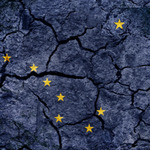


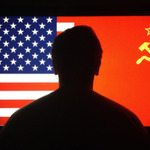
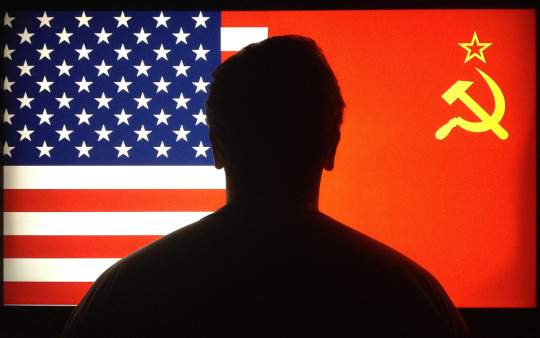
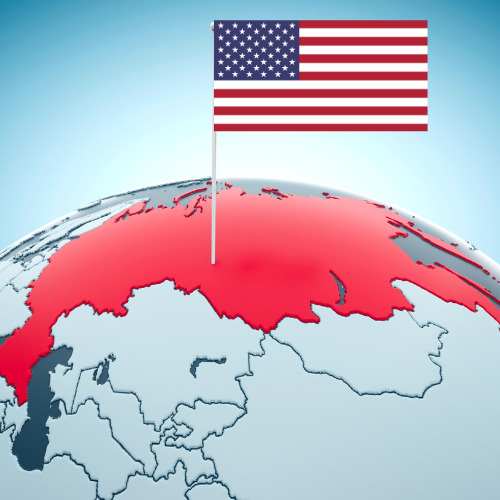




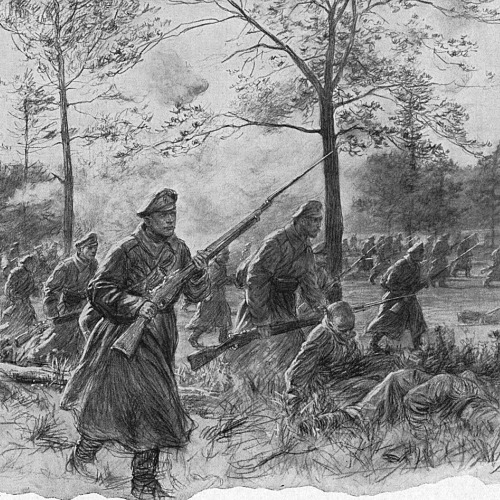
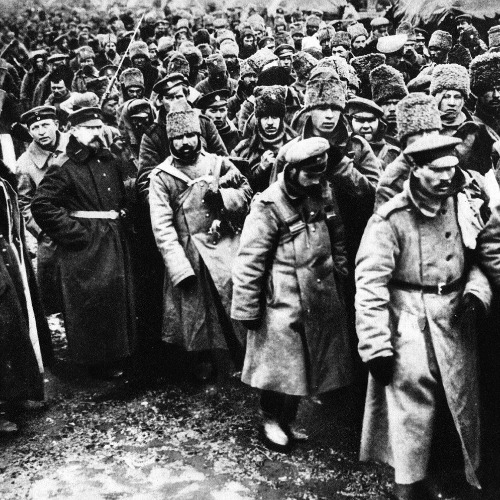



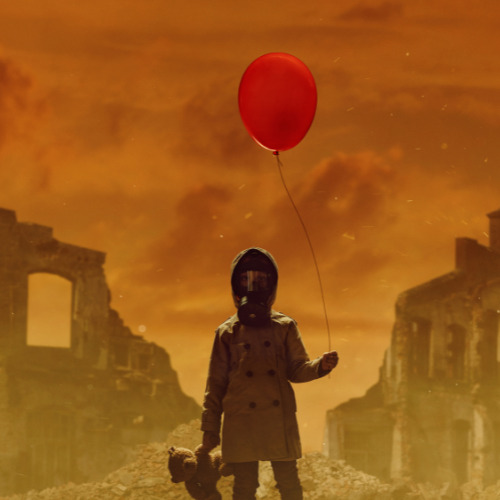
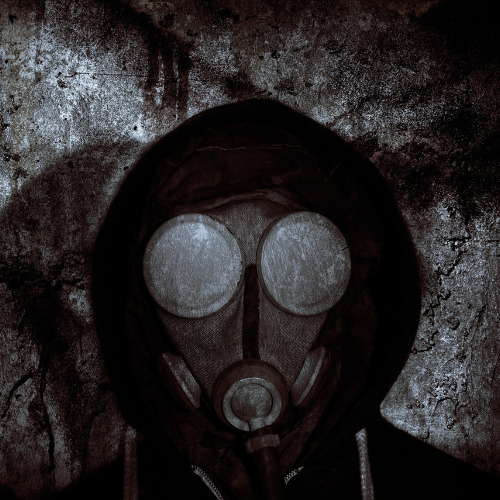


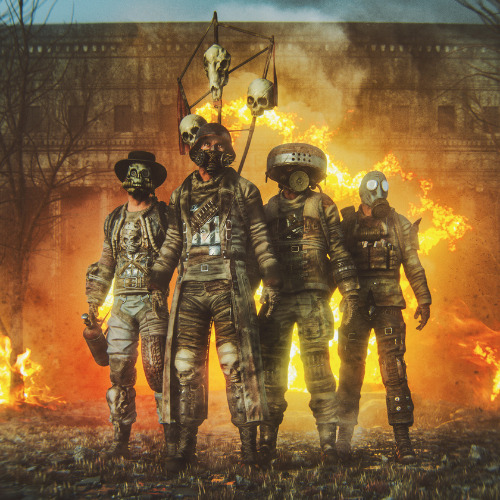

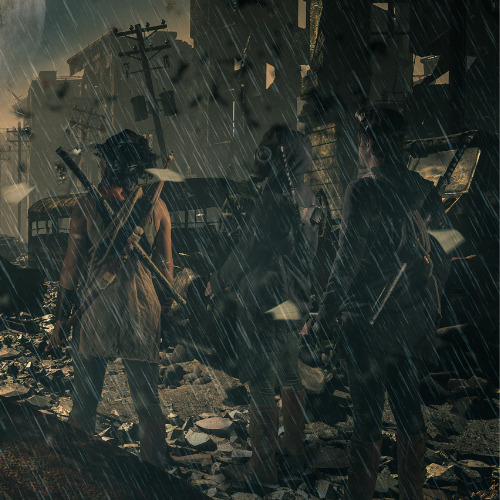


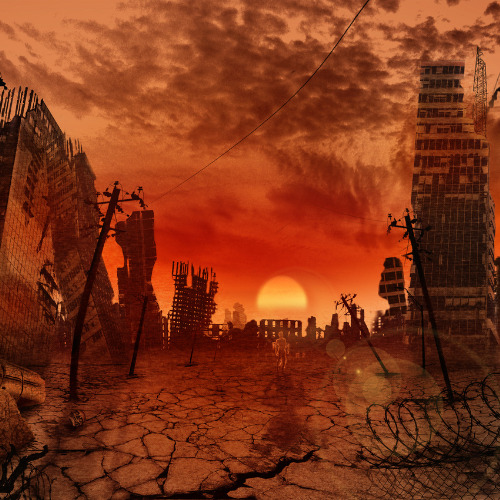
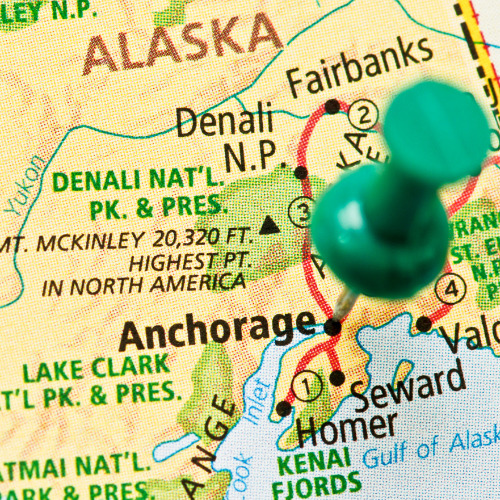
#nuclear symbol#garden bros nuclear circus#effective nuclear charge trend#naval nuclear laboratory#watts bar nuclear plant#nuclear power plants in nc#nuclear power plant nj#national museum of nuclear science & history#united nuclear#b83 nuclear bomb#north anna nuclear power plant#nuclear lamina#nuclear pore#nuclear sclerosis in dogs#mcguire nuclear station#nuclear cataract#nuclear wasabi#nuclear explosion gif#comanche peak nuclear power plant#oconee nuclear station#nuclear power plants in south carolina#nuclear sign#nucular vs nuclear#bomba nuclear#nuclear circus#which molecules do not normally cross the nuclear membrane?#calvert cliffs nuclear power plant#grand gulf nuclear station#nuclear physicist salary#nuclear medicine technologist jobs
2 notes
·
View notes
Text
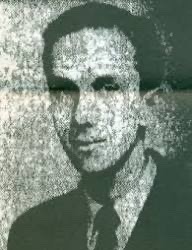
Robert Johnson Omohundro (June 17, 1921 - May 15, 2000) was one of a select few Black scientists and technicians to work on the Manhattan Project and thus contribute to the development of the atomic bomb during WWII. He was born in Norfolk to Henry Omohundro and Brownie Pierce Omohundro, he had 5 siblings.
He graduated from Booker T. Washington High School in Norfolk and earned a BS in Mathematics and an MS in Physics from Howard University. After graduation, he worked as a radio tester with the Western Electric Company.
His contribution to the atom bomb project was his work as a mass spectroscopist. Mass spectrometry is a common technique that scientists use to help identify particles in samples by their mass. During WWII he worked at a secret facility in Arizona and was responsible for developing devices to locate and measure radiation emissions from atomic warheads. These devices were used long after WWII by the International Atomic Energy Agency in airports around the world to detect clandestine transfers of fissionable material and portable neutron detectors.
He applied the techniques of nuclear physics honed during his work on the Manhattan Project to developing technology at the Naval Research Laboratory in DC. He was noted for his development of devices that prevent the propagation of plutonium at airfields. He continued his WWII research by designing more advanced devices for radiation detection from nuclear warheads. He obtained two patents in the field of nuclear physics. Throughout his career, he authored and co-authored 40 scientific articles.
He was a member of the American Physical Society, the Research Society of America, and Alpha Phi Alpha Fraternity. #africanhistory365 #africanexcellence #alphaphialpha
0 notes
Text
Imperial dispossession in Greenland and islands of the Pacific. Making new suburbias. Exporting US domestic lifestyles.
---
Within the Western popular imagination, places like the RMI [Marshall Islands] and Greenland are often used as mirrors or-perhaps more accurately-as bellwethers: an example of what could be (or what will become of) the so-called First World [...]. They are rarely made meaningful on their own. Instead, reports published in major news outlets describe a “melting” Greenland and a “disappearing” Marshall Islands by translating their loss through symbolic forms deemed more legible to the average American. [...] [N]uclear photography endeavored to “take the place out of the landscape” so as to replace public concerns around ethics instead with awe [...], [undertaken simultaneously as] movement of peoples necessary to, first, produce terra nullius-a space emptied and made available [...] -and second, to mark that space as distinctly American through the installation of miniature suburbias in the form of military bases and bunkers [...]. Social, geographical, and material practices of division [...] reflect what Aimee Bahng has referred to as “settler colonial… constructions of enclosure” [...].
[A] “homemaking project” that once collapsed the “here” and “there” of US empire now envisions a difference that overlooks American complicity in apocalyptic climate futures upon Indigenous lands across North America, Oceania, and the Arctic. It is, in part, because of the presumed insignificance of the Marshall Islands and Greenland (and by extension their people) that these two places became pulled into the crosshairs of [...] geopolitical [projects]. [...]
---
As Marshallese activist Darlene Keju-Johnson recalled, “in 1946, a U.S. Navy officer came to Bikini Island and told Chief Juda, ‘We are testing these bombs for the good of mankind [...]’… the naval officer did not tell the chief that the Bikinians would never see their home again” [...]. Moved to first Rongdrik (Rongerik), then Ānewetak, then Kuwajleen (Kwajalein), and then Kōle (Kili), ri-Pikinni struggled to survive as the United States tested sixty-seven nuclear bombs on Pikinni (Bikini) and other nearby sites between 1946 and 1958. [...] These ideologies were exported in the form of US military installations like the US Army Garrison Kwajalein Atoll and Greenland’s Camp Century, constructed in midcentury. [...] Historian Lauren Hirschberg’s analysis of the suburbanization of Kuwajleen highlights how the heteronormative nuclear family structure became central to the remaking of the atoll as both a space of exception and “a colonial technology for marking the island as a familiar domestic national space” [...].
Through a major partnership with Bell Telephone Laboratories, the US military promoted life on Kuwajleen as a space of supreme comfort and leisure through the publication of welcome guides that boasted salons, prime rib dinners, and department store shopping [...]. Meanwhile, Marshallese day laborers who provided janitorial, housekeeping, and groundskeeping services commuted from Epjā (Ebeye), where they lived both segregated from and economically beholden to the base [...].
---
Just as Marshallese were displaced from Pikinni and other atolls, Inuktun were moved to accommodate American military operations. [...] One of the largest military bases ever constructed by the United States, Thule served as a key strategic location [...] and, simultaneously, distracted from undisclosed nuclear activity at nearby Camp Century, a “city under the ice” that housed an arsenal of six hundred nuclear missiles [...]. [P]lans for Thule’s expansion in May 1953 included the forced removal of eighty-seven Inuktun and the demolition of their homes [...].
Newsreels about Camp Century similarly highlighted features designed to replicate American suburban life “under the ice.” Created by the United States in 1960, Camp Century operated as a cover for Project Iceworm, which used a network of subterranean tunnels burrowed under the Greenland ice sheet [...]. The camp, which operated only until 1966, comprised living quarters, research facilities, and a portable nuclear reactor for the stated purpose of better understanding military effectiveness and operations in Arctic conditions. In the minds of Americans, who came to know this “city under the ice” through maps, photographs, and live footage circulated by the US government, it functioned as a kind of ultimate fantasy fallout shelter that promised to keep the American way of life secure and safe [...]. The US Department of Defense 1961 short film Big Picture: City under the Ice is one example of the substantial media production surrounding Camp Century, which reveled in the engineering used to build closed-system facilities for maintaining American lifestyles amid what is frequently referred to as “barren” and “lifeless” landscapes. In it, the narrator lists items representing domestic comforts: prefabricated houses, hot showers, and “even ice cream” as a subtle underscore of the hermetic barrier between the bunker and the glacier [...].
---
As Anne Spice points out in their analysis of Indigenous resistance [...], long-standing “binaries of civilized/savage and culture/nature” continue to inform theorizations of the built environment as marks of modernity. The role that infrastructure plays in state-building projects has a capillary function, pumping power in the form of oil, electricity, water, people, and capital into Indigenous territories in ways that, in turn, obscure Native presence. Tracing a substantial anthropology of infrastructure that locates transportation systems like pipelines, railroads, and highways as “settler colonial technologies of invasion,” Spice reveals how these material networks naturalize settler presence as seemingly stable, inevitable, and permanent [...]
---
Text above by: Hi’ilei Julia Hobart. “Atomic Histories and Elemental Futures across Indigenous Waters.” Media + Environment 3 (1). 2021. DOI at: doi dot org/10.1525/001c.21536. Also at: mediaenviron dot org/article/21536-atomic-histories-and-elemental-futures-across-indigenous-waters [Bold emphasis and some paragraph breaks/contractions added by me. Italicized first paragraph/heading in this post added by me. Presented here for commentary, teaching, criticism purposes.]
#tidalectics#multispecies#ecologies#elizabeth deloughrey#kathryn yusoff#ecology#carceral geography#plantations and debt colonies
17 notes
·
View notes
Text
When I think of the toxic dumpster fire on the horizon, a president as decent and intelligent and principled as Jimmy Carter seems more and more like an Arthurian legend—possibly grounded in some historical truth but encrusted with ages of fabrication and fiction.
Compared to the degenerates, crooks, and idiots who’ve filled the Oval Office since he served—only BHO merits any respect—I imagine he’ll be the last one of his kind we’ll see for a long-ass time.
This 2023 WaPo article captures some of what made him a great man:
The world was in the grip of the Cold War in 1952 when a nuclear reactor began melting down.
That reactor, located at Chalk River Laboratories in Ontario, had suffered an explosion on Dec. 12. Radioactive material had escaped into the atmosphere, and millions of gallons of radioactive water flooded into the reactor’s basement. Thankfully, no one was injured, but the Canadians needed help to disassemble the reactor’s damaged core.
The United States sent 28-year-old Jimmy Carter.
Carter, who entered home hospice care this weekend at 98, is best known for being the nation’s 39th commander in chief and oldest living president. But his service to the country began when he was a teenage plebe at the U.S. Naval Academy and continued for four decades after his presidency.
In the years after graduating from Annapolis in 1946, Carter was promoted to lieutenant and took a dangerous assignment aboard a submarine. He was away from his young bride, Rosalynn, and their growing family quite a bit.
It was in these years that President Harry S. Truman desegregated the military. Robert A. Strong, a politics professor at Washington and Lee University, recounts an incident from this period. While his submarine was docked in Bermuda, British military officers invited White members of the American crew to a party. At Carter’s urging, the entire crew refused to attend because it was segregated.
In 1952, Carter was selected to join an elite team to help develop the Navy’s first nuclear submarines. Once he had trained his crew and the submarine was constructed, Carter was to be the commanding officer of the USS Seawolf, according to Carter in his 1976 book “Why Not the Best?: The First 50 Years.”
Then the partial meltdown happened, and Lt. Carter was one of the few people on the planet authorized to go inside a nuclear reactor.
Carter and his two dozen men were sent to Canada to help, along with other Canadian and American service members. Because of the intensity of radiation, a human could spend only 90 seconds in the damaged core, even while wearing protective gear.
First, they constructed an exact duplicate of the reactor nearby. Then they practiced and practiced, dashing into the duplicate “to be sure we had the correct tools and knew exactly how to use them,” Carter wrote.
Each time one of his men managed to unscrew a bolt, the same bolt would be removed from the duplicate, and the next man would prep for the next step.
Eventually, it was Carter’s turn. He was in a team of three.
“Outfitted with white protective clothes, we descended into the reactor and worked frantically for our allotted time,” he wrote.
In one minute and 29 seconds, Carter had absorbed the maximum amount of radiation a human can withstand in a year.
The mission was successful. The damaged core was removed. Within two years, it had been rebuilt and was back up and running.
For several months afterward, Carter and his crew submitted fecal and urine samples to test for radioactivity, but “there were no apparent aftereffects from this exposure,” Carter wrote, “just a lot of doubtful jokes among ourselves about death versus sterility.”
But in an interview with historian Arthur Milnes in 2008, Carter wasn’t as cavalier. He said for six months his urine tested positive for radioactivity.
“They let us get probably a thousand times more radiation than they would now,” he said. “It was in the early stages, and they didn’t know.”
Carter returned to preparing to command a nuclear submarine, but soon, fate intervened. In July 1953, Carter’s father Earl died of pancreatic cancer at 58. (In fact, pancreatic cancer would eventually kill his mother and all three of his siblings.)
As the eldest child, Carter sought an immediate release from the Navy to take over the family business. After seven years of service, he was honorably discharged on Oct. 9, 1953.
The incident had a lifelong impact on Carter’s views on nuclear power, Carter biographer Peter Bourne told Milnes. As a young naval officer, he had approached it in a “very scientific and dispassionate way,” Bourne said, but Chalk River showed him its power to destroy.
“I believe this emotional recognition of the true nature of the power mankind had unleashed informed his decisions as president,” Bourne said, “not just in terms of having his finger on the nuclear button, but in his decision not to pursue the development of the neutron bomb as a weapon.”
aav.
43 notes
·
View notes
Text
The ranks of America’s Astronaut Corps grew by 11 today!
After completing more than two years of basic training, our graduating class of astronauts is eligible for spaceflight. Assignments include the International Space Station, Artemis missions to the Moon, and ultimately, missions to Mars.
The class includes 11 astronauts, selected in 2017 from a record-setting pool of more than 18,000 applicants. This was more than double the previous record of 8,000 applicants set in 1978.
Meet the graduates:
Kayla Barron
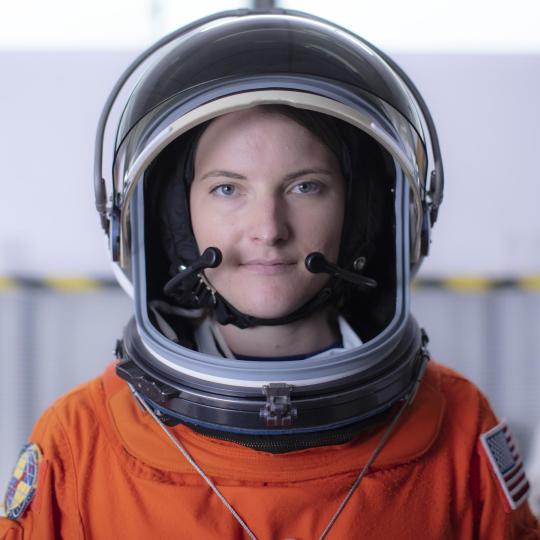
“If you don’t love what you’re doing, you’re not going to be good at it. I think it’s a combination of finding things that you really love that will also be really challenging and will force you to grow along the way.”
This Washington native graduated from the U.S. Naval Academy with a bachelor’s degree in systems engineering. As a Gates Cambridge Scholar, which offers students an opportunity to pursue graduate study in the field of their choice at the University of Cambridge. Barron earned a master’s degree in nuclear engineering.
As a Submarine Warfare Officer, Barron was part of the first class of women commissioned into the submarine community, completing three strategic deterrent patrols aboard the USS Maine.
Zena Cardman

“Every STEM opportunity that I have ever gone down is because of some mentor who inspired me or some student who was ahead of me in school who inspired me.”
Zena Cardman is a native of Virginia and completed a bachelor’s degree in biology and master’s degree in marine sciences at The University of North Carolina, Chapel Hill. Her research has focused on microorganisms in subsurface environments, ranging from caves to deep sea sediments.
An intrepid explorer, Cardman’s field experience includes multiple Antarctic expeditions, work aboard research vessels as both scientist and crew, and NASA analog missions in British Columbia, Idaho, and Hawaii.
Raja Chari
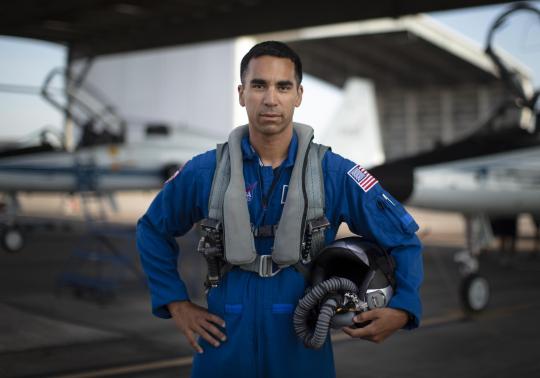
“I grew up with the mentality that education is truly a gift not to be taken for granted.”
This Iowa native graduated from the U.S. Air Force Academy in 1999 with bachelor’s degrees in astronautical engineering and engineering science. He continued on to earn a master’s degree in aeronautics and astronautics from Massachusetts Institute of Technology (MIT) and graduated from the U.S. Naval Test Pilot School.
Chari served as the Commander of the 461st Flight Test Squadron and the Director of the F-35 Integrated Test Force. He has accumulated more than 2,000 hours of flight time in the F-35, F-15, F-16 and F-18 including F-15E combat missions in Operation Iraqi Freedom.
Matthew Dominick
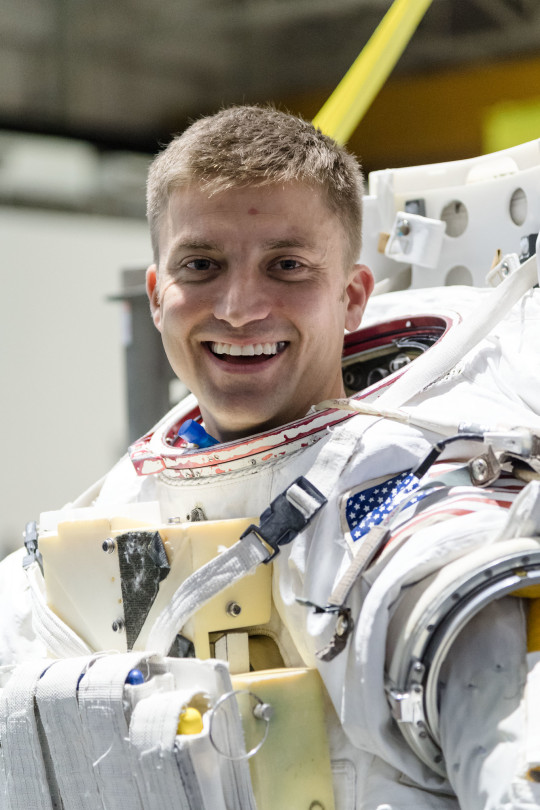
“I get to work with incredible people that want to solve problems and are passionate about it. I really want to contribute to the world and this is how I want to do it.”
This Colorado native earned a bachelor’s degree in electrical engineering from the University of San Diego and a master’s degree in systems engineering from the Naval Postgraduate School. He also graduated from U.S. Naval Test Pilot School.
Dominick served on the USS Ronald Reagan as department head for Strike Fighter Squadron 115. He has more than 1,600 hours of flight time in 28 aircraft, 400 carrier-arrested landings and 61 combat missions.
Bob Hines
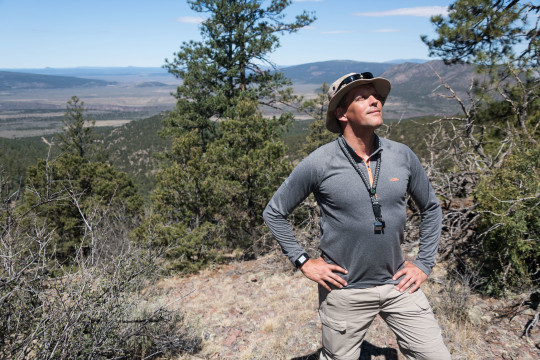
“As you get older, other things become important to you, like being a part of something that’s bigger than yourself. This human endeavor of exploration is something that’s really exciting.”
Bob Hines is a Pennsylvania native and earned a bachelor’s degree in aerospace engineering from Boston University. He is a graduate of the U.S. Air Force Test Pilot School, where he earned a master’s degree in flight test engineering. He continued on to earn a master’s degree in aerospace engineering from the University of Alabama.
Hines served in the U.S. Air Force and Air Force Reserves for 18 years. He also served as a research pilot at our Johnson Space Center. He has accumulated more than 3,500 hours of flight time in 41 different types of aircraft and has flown 76 combat missions in support of contingency operations around the world.
Warren Hoburg
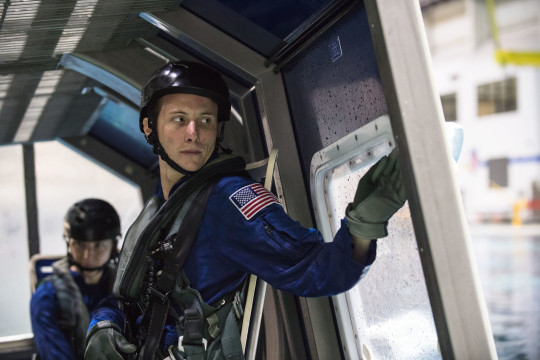
“It was back in high school that I realized that I was really interested in engineering. I always liked taking things apart and understanding how things work and then I also really enjoy solving problems.”
Nicknamed “Woody”, this Pennsylvania native earned a bachelor’s degree in aeronautics and astronautics from MIT and a doctorate in electrical engineering and computer science from the University of California, Berkeley.
Hoburg was leading a research group at MIT at the time of his selection and is a two-time recipient of the AIAA Aeronautics and Astronautics Teaching Award in recognition of outstanding teaching.
Dr. Jonny Kim
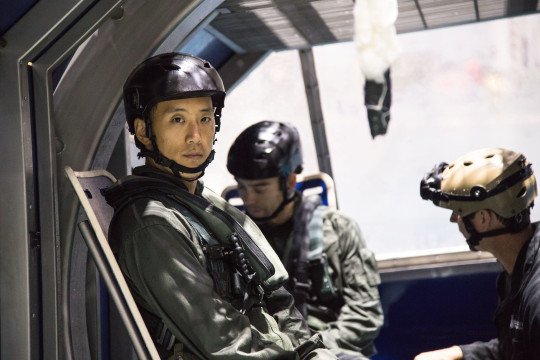
“I fundamentally believed in the NASA mission of advancing our space frontier, all while developing innovation and new technologies that would benefit all of humankind.”
This California native trained and operated as a Navy SEAL, completing more than 100 combat operations and earning a Silver Star and Bronze Star with Combat “V”. Afterward, he went on to complete a degree in mathematics at the University of San Diego and a doctorate of medicine at Harvard Medical School.
Kim was a resident physician in emergency medicine with Partners Healthcare at Massachusetts General Hospital.
Jasmin Moghbeli
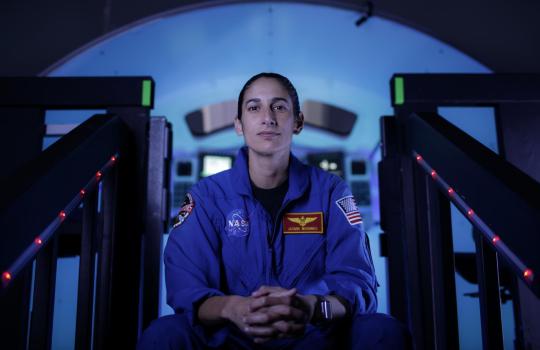
“Surround yourself with good people that have the characteristics that you want to grow in yourself. I think if you surround yourself with people like that you kind of bring each other up to a higher and higher level as you go.”
Jasmin Moghbeli, a U.S. Marine Corps major, considers Baldwin, New York, her hometown. She earned a bachelor's degree in aerospace engineering with information technology at MIT, followed by a master’s degree in aerospace engineering from the Naval Postgraduate School.
She is a distinguished graduate of the U.S. Naval Test Pilot School and has accumulated more than 1,600 hours of flight time and 150 combat missions.
Loral O’Hara
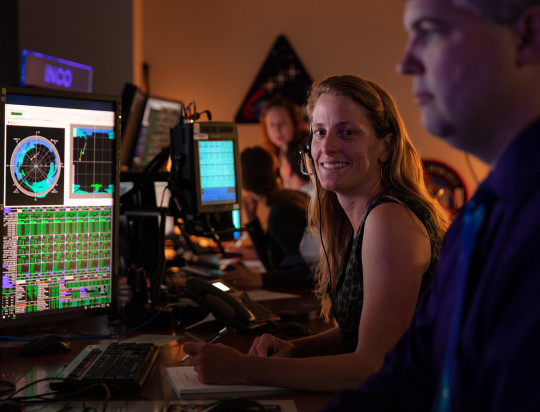
“I’m one of those people who have wanted to be an astronaut since I was a little kid, and I think that came from an early obsession with flying – birds, airplanes, rockets.”
This Houston native earned a bachelor’s degree in aerospace engineering at the University of Kansas and a Master of Science degree in aeronautics and astronautics from Purdue University. As a student, she participated in multiple NASA internship programs, including the Reduced Gravity Student Flight Opportunities Program, the NASA Academy at Goddard Space Flight Center, and the internship program at the Jet Propulsion Laboratory.
O’Hara was a research engineer at Woods Hole Oceanographic Institution, where she worked on the engineering, test and operations of deep-ocean research submersibles and robots. She is also a private pilot and certified EMT and wilderness first responder.
Dr. Frank Rubio
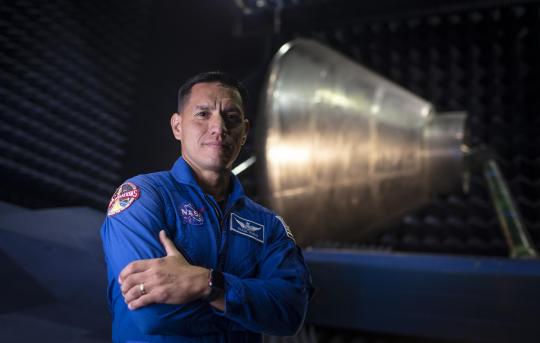
“I just figured it was time to take the plunge and try it. And so, I did and beyond all dreams, it came true.”
Dr. Francisco “Frank” Rubio, a U.S. Army lieutenant colonel, is originally from Miami. He earned a bachelor’s degree in international relations from the U.S. Military Academy and earned a doctorate of medicine from the Uniformed Services University of the Health Sciences.
Rubio served as a UH-60 Blackhawk helicopter pilot and flew more than 1,100 hours, including more than 600 hours of combat and imminent danger time during deployments to Bosnia, Afghanistan, and Iraq. He is also a board certified family physician and flight surgeon.
Jessica Watkins
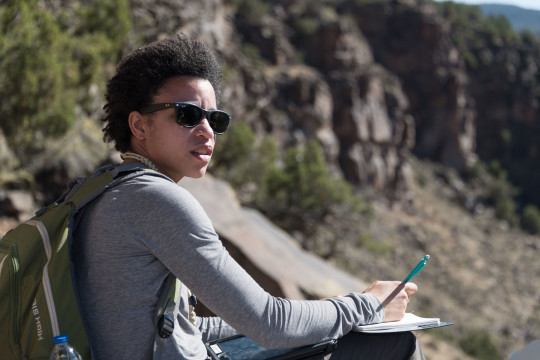
“I’ve always been interested in exploring space. What’s out there and how can we as humans reach those outer stars and how can we learn more information about who we are through that process.”
This Colorado native earned a bachelor’s degree in geological and environmental sciences at Stanford University, and a doctorate in geology from the University of California, Los Angeles. Watkins has worked at Ames Research Center and the Jet Propulsion Laboratory.
Watkins was a postdoctoral fellow at the California Institute of Technology, where she collaborated on the Mars Curiosity rover, participating in daily planning of rover activities and investigating the geologic history of the Red Planet.
Learn more about the new space heroes right here: https://www.nasa.gov/newastronauts
Make sure to follow us on Tumblr for your regular dose of space: http://nasa.tumblr.com.
2K notes
·
View notes
Text
The Syncode
CH. 6: Plans, Relationships and Shopping
It was nearly midnight and Mycroft was still at his desk, pouring over files and reports. Nothing of seeming importance stood out, and the search was leading nowhere. About to call it a night, his private cell rang:
Julian.
He prayed there was a lead on that end of things, and quickly answered it. Mycroft's eyes widened in disbelief as his cousin relayed the brief communique he'd received from the Cryptology department. He poured himself another scotch from the cut crystal decanter set on his desk.
"It's more than likely the scientists on that island were working on a separate project not related to the atomic testing there," Julian explained, referring to the nuclear tests conducted in the Marshall Islands at the end of WW2. "In fact," he continued, "one of them was a British - Australian. I'm sure you've heard the name: Ernest Titterton?"
"He lived until the early '90's, I believe," Mycroft said.
"Correct. He was involved in the Manhattan Project before the Americans severed their collaboration with the British Tube Alloy project," Julian replied. "After the war Titterton was selected to advise the Naval Research Laboratories in Washington, D.C. on the Operation Crossroads nuclear tests. He was asked to stay due to his expertise in timing measurements, and performed the countdown for both tests at Bikini Atoll. I believe he was also involved with the tests performed on this other island nearby."
The Australian SIS had intercepted messages between Andrena's contacts, learning of movement of her people to and from one of the Bikini Atoll islands. The two main players were the same ones in both Macau and Majuro. Julian had at once focused his research on the history of the islands, as well as the covert projects performed there that had escaped the history books. It was possible everything was tied together.
"And this other project at the Bikini Atolls had nothing to do with nuclear physics? Titterton was a nuclear physicist. Remember, it was a race against the Germans at that time to develop that technology," said Mycroft.
"From what little I can find on it, no, it had nothing to do with it. Yet Titterton worked closely with Vannevar Bush, who was also head of the U.S. Office of Scientific Research and Development and oversaw the Manhattan Project. Most likely it was in part for the war effort. The sheer isolation alone would have made the Atolls the perfect spot to conduct their experiments. Operating under the guise of the Crossroads project gave them an additional cover."
Mycroft rapidly put together all the facts, trying to find a common denominator:
Present - A lone island in the Bikini Atolls and a shadowy person named 'Andrena' who seemed to have top government connections.
Past - Operation Crossroads nuclear tests post WW2, most likely overseen in some way by Vannevar Bush, who was also the head of the Manhattan Project some years earlier. An American engineer and inventor, he had joined the Department of Electrical Engineering at Massachusetts Institute of Technology (MIT) in 1919. Bush was also a science administrator, who during World War II headed the U.S. Office of Scientific Research and Development the initiation and early administration of the Manhattan Project. Emphasizing the importance of scientific research to national security, he was chiefly responsible for the creation of the National Science Foundation. It appeared Bush had his hands in a multitude of pies, and top secret ones at that. So much fell under this man's umbrella that he was more than likely indirectly involved in the Crossroads tests. Mycroft smiled. Vannevar Bush was not unlike himself, and had very much been his American counterpart, answering also to the leader of that country. And what did Titterton, a British-Australian nuclear physicist also involved in the atomic explosions have to do with this secret project at Bikini?
"Do we have any clue as to who the other four scientists were that worked on this secret project?" Mycroft asked.
"Only very few sketchy details, I'm afraid, " Julian replied. "They were masters in their fields, but none involved atomic principles. In fact, their expertise lay in electromagnetism!"
Vannevar Bush also happened to be an electrical engineer. Mycroft shook his head. Each piece of information yielded only more questions. "What could that possibly have to do with the tests conducted on those islands?" he exclaimed.
"It's a mystery, cousin," Julian answered. "All records of it have been scrubbed and destroyed. My contacts within the FBI, CIA and Research and Development have come up with nothing extra that was going on there. The only connection outside involved Titterton, who assisted in the nuclear testing in Australia later on in the fifties and the Manhattan Project earlier. Whatever this Andrena is involved in is obviously more dangerous that what we previously surmised," he concluded.
"Indeed. We were of the opinion they were involved with the Spratly islands, due to what little we could glean from the intercepted messages of their Macau contact," Mycroft sighed.
"This is much bigger and far reaching, I'm afraid," Julian said. He paused. "How is Joanne?"
Mycroft smiled. "She is doing as well as can be expected under the circumstances."
"Good to hear it. I worry about that one," Julian said fondly. "It was my fault," he said, sadly shaking his head. If only he hadn't fallen for the enemy's ploy and called her..
"Possibly," Mycroft agreed, "but what's done is done. We would not have secured Soleimani had it not happened," he said pragmatically. Interrogated with the harshest of Mycroft's tactics, the Albanian had still refused to talk. Learning nothing from him, he was incarcerated in a top security institution for life.
Try as he might, Julian worried constantly about her, even though he knew she was safe with his cousins. "You saw the jewelry I sent with her?" he asked, referring to the writing inscribed inside.
"I did," answered Mycroft. "You think a great deal of this woman."
"I would trust her with my life, yes. She means a great deal to me."
"And yet you sent her to me," Mycroft stated. He had known almost instantly the reason for sending her, and no one else.
"Joanne will be good for you, cousin. Since she will be with you until this business is over, I suggest you get to know her. Take her out a bit, show her the sights. I dare say she would especially appreciate the quieter parks and countryside," Julian added.
Mycroft's eyes narrowed. "I am afraid you are mistaken, cousin mine. As you have so often told me, caring is not an advantage, especially in our family. A polite host I will be, but nothing more, I assure you. "
Julian's voice hardened immediately. "You are treating her well, I trust?"
Words lodged in his throat as Mycroft realized his cousin hadn't yet learned of the film room incident, nor that the attack at the hotel was exacerbated due to a miscalculation on his part. Most likely even his brother had thought that maximum security had been put around the hotel. Assigning only the bare minimum for protection, Mycroft was glad that Sherlock had been there - the alternative was unthinkable. He hadn't expected their adversary to consider Joanne a threat, much less even know about her.
The small pause was all it took.
A blistering tirade proceeded over the line as Julian swore up a storm, searing his cousin's ears a hot shade of pink. In no great detail, Mycroft described his embarrassing lack of oversight and severe underestimation of their enemy's resolve, as well as the scene in the film room and Joanne's calm reaction. He didn't mention the tears in her eyes.
"Bloody hell Mycroft!! I gave her my word that she would be safe you, that she could trust you!" Julian paused, catching his breath. "What were you thinking?!"
Not one to be stuck for words, Mycroft was speechless in the face of his elder cousin's anger. What could he say? Julian was right.
Julian went on. "Of course she would appear steady considering her condition, look at the practice she's had of hiding emotions all these years." The anger subsided as he realized that he had also snapped at her on occasion. "I am sorry cousin. The Holmes temper does nothing to help our relationships, does it?"
"And what exactly is your relationship with Miss Hartwell?" Mycroft asked.
"I.." It was now Julian's turn to be at a loss for words. "She is a good friend of mine, nothing more," he said, his composure and steely reserve intact once again. "I mean for you to get acquainted and become friends; and in time, possibly something more," he announced. "I am adamant on this cousin, and will hear no argument."
"And what is her opinion on the matter? Have you asked her?"
Julian sighed. "No I have not, nor do I intend to. What she thinks at the moment is of no consequence. As for the earlier incident - make it up to her. Take her out for a meal. Make her happy, Mycroft. For me. That's all I ask."
Mycroft shifted uncomfortably in his chair. "Why is this so important to you? We do have slightly more pressing matters to hand, cousin mine. This new threat and their involvement in the Pacific islands?"
Julian wasn't to be dissuaded. "I am only looking out for your welfare and Joanne's, Mycroft, especially that of your happiness."
"I am happy enough, thank you," Mycroft replied coldly. "If Miss Hartwell is not, then I am afraid there is nothing I can do to remedy that."
"You are content enough at work, I'm sure; but I meant in all aspects of your life. Admit it cousin, you are lonely, as is Joanne. And yes, you can indeed remedy that. For the both of you."
Mycroft was more than a bit irritated that he had in fact felt an almost kindred connection with Joanne Hartwell - and something else that he didn't care to examine too closely. He'd known her only one day, after all. This wasn't something he would admit to Julian, however. Bringing the topic back to their current problem, he said "Relationships notwithstanding, I believe a trip to the Marshall Islands is in order."
There was silence as Julian considered this. Joanne would of course have to accompany them, and he said as much. After the events at the Lanesborough, there was no way she could be left alone in London. Although they had nabbed the assassin, Julian had no doubt their adversary had more lined up to finish the job.
"You do realize we would be going right into enemy territory, cousin. Andrena will no doubt have operatives waiting. Miss Hartwell will be, I believe, in even more danger there," Mycroft stated.
"She will be with yourself and Sherlock," Julian intonated. Hearing the surprised silence at the other end, he added "I recommend that your brother go along as well. Both of you will be needed on this, I'm afraid."
"And no doubt as extra protection for Miss Hartwell," replied an amused Mycroft.
"Quite so, cousin. Handpicked agents will of course be sent as a vanguard to scout for any danger before your arrival, of course," Julian said.
"Naturally, though no doubt Sherlock will beat them to it," Mycroft replied. "He does love his legwork," he said as he tried unsuccessfully to withhold a giant yawn.
"Ah, it's well after midnight there. We will continue this conversation once we have more information. In the mean time, surveillance will be maintained on the known contacts out here in the Pacific." A note of questioning disbelief crept into Julian's voice. "How the blazes can they only trace her contacts' side of the conversation?" he wondered. "They were pinned down easily enough!"
"We believe it to be some kind of new technology unknown to the government at the moment," Mycroft answered. "From the one ended dialogue we have heard so far, it would appear that she knows a great deal regarding it. They are interested in acquiring the data that was being experimented with, after all."
Something else occurred to Mycroft. "Since the only things we know of the scientists are their shared background in electromagnetics, I will conduct a search of my own in regards to this person. It is quite possible she also has a similar background."
"That make sense. Again, it depends if she is working for someone, in which case it is they who have that knowledge. Either way, it's a place to start."
They hung up, with a date set for one last communication to discuss in detail the logistics of the Holmes brother's pending trip to the Marshall Islands. It would be done entirely in Syncode, sent as Morse code in the Latin alphabet on a predetermined shortwave frequency. Both owned HAM radio receivers, and due to their positions within the government, needed no official license to operate them. This would provide extra layers of protection for communiqué between the three Holmes men, wherever they happened to be. If all went to plan, they would be on their way to the Marshall Islands in two weeks time.
***
Bright sunlight filled the room as Joanne slowly opened her eyes. The large four poster had proven quite comfortable. She realized for the first time that she'd managed to sleep the whole night without once waking up. Perhaps it was the new surroundings that did not have the memory of a traumatic event attached to it, unlike her apartment. Most nights were spent only half sleep, as though her body was determined not to shut all the way down in case another fire should break out. It didn't help that her neighbors would literally run down the stairs in the middle of the night. There were times when Joanne wanted to call out from her window and ask them this. Why did they run? Where were they going in such a hurry at that late hour? For a brief moment, Joanne wondered where she was before remembering the attack at the hotel and Mycroft's offer to bring her home, albeit temporarily while the flat next to his brother's was being prepared.
Pulling the last change of clothes from her duffel, an unpleasant thrill of anxiety raced through her. Mycroft had told her to be ready early for a shopping excursion with his assistant. A 'missed alarm' alert appeared at the top of her phone screen. Oh no. And he had given her the phone back just for that purpose with a promise not to use it to make phone calls. Not that she had anyone in her contacts list except work, her parents and the fish sitters. She was surprised no one had awakened her. The sun was already making its way toward the midmorning point in the sky. Joanne hurriedly finished dressing and made her way downstairs, pausing at the landing. Where would she find Mycroft? More than likely in his study she thought, remembering Olivia's earlier words. Apparently he never went into the kitchen. Finding the solid door shut, she gently knocked.
"Enter," came the muffled command.
She found Mycroft at his customary place behind the desk. "You're finally up," he said drily.
"I'm so sorry, Mycroft! I know you said to be up early. I didn't hear the alarm. Guess I was more tired than I thought," Joanne said sheepishly. "I'm sorry about the shopping thing.."
"Pardon? Did I say that it was canceled?" He indicated a chair in front of the desk. "It's just as well, actually. Sherlock's contact had something come up last night, and was only able to finish the security on it an hour ago. Anyway, I expect you needed the extra sleep, considering yesterday's events."
"Ah, well that's good. You said we were going to stop by his place to get it before Anthea takes me out." Just thinking of the endless hours trying on of clothes made her exhausted. She was glad for the simple leggings and t-shirt that could easily be shed in the dressing rooms.
Again, Mycroft had the uncanny habit of reading a person's micro expressions. "Have you eaten? I expect you will need your energy for it."
Joanne got up to go. "I'll have a gander in the kitchen. Maybe there's some leftovers."
"You will do no such thing," he said as she reluctantly sat back down. "I will be ready in five minutes. Do you have the phone with you?" he asked, extending a hand to retrieve it from her.
"Yeah, here," she said, handing it to him. "I did use it for reading my commentaries, though. Hey! I got your message, too - I accept your apology," she said, referring to the poem he had told her to read the night before.
Though the usual unassailable composure remained intact, she noted a faint blush to the tips of his ears. Joanne hid a smile as she looked down at her lap. It was obvious to her that this man loved, no, craved, compliments and statements of appreciation. Remembering his parent's lack of attention to him as a child, it was no wonder. She vowed to do so often. As important as Mycroft Holmes was in his work world, he was still very much undervalued as a person, especially by his family. Joanne vowed to make up for it in some way, however small.
"Yes, I thought you might discern the meaning behind it. My methods are not always understood by most people, goldfish that they are," he stated loftily.
That they are, Joanne mused. Did he not consider her a goldfish, then? It was her turn to color a light shade of pink.
"Did you read any more of the poems?" he asked. "As I said, you may borrow them from the library anytime you wish," he reminded her.
"Of course, and thank you," she said. Her dad was especially fond of poetry, though Joanne had never gotten into it. This wasn't something Mycroft needed to know, however; she wanted to build a rapport and find some kind of common ground with him. Perhaps she would browse through a few and hopefully take a liking to one of the authors. She was glad they shared an interest in film noir at least, though Joanne wasn't keen to visit that room again any time soon. "I did not read any more afterwards, I'm afraid. Strangely enough, it was in your voice that I heard the narrator! I fell asleep right after the last line."
"I am glad that my voice has an anesthetic effect on you," Mycroft stated mildly.
"Hardly. It is calming though." Joanne closed her eyes. "Very soft and soothing, and not unpleasant."
If anyone else had said this, Mycroft would have known instantly they were lying, or more likely, bribing him with flattery. Remembering the effects that audio and other stimuli had with Miss Hartwell during their first encounter, he had no doubt that she was telling the truth. A little more than his ears suffused with color as he lowered his head to study a file that lay open on the desk, hoping she didn't notice.
Joanne did, however. Her medical background had trained her to notice the slightest change in a patient, which worked for her in any situation. The extreme polarities of this man were astounding, whose character vacillated between cold, formidable and downright sinister to sweet, vulnerable and at the moment, somewhat bashful. Mycroft Holmes was like a multi faceted diamond, reflecting a full spectrum of colors from every angle. Joanne was drawn to him, and wanted to explore each plane and prism of this jewel that sat before her. She shook her head at the direction of her thoughts. Haven't had my coffee yet, she reasoned pragmatically.
She walked over to the windows that overlooked both the front and side of the house. The place is perfect for bird watching, she thought. It was a pity she would only be here one more night before moving into the flat next to Sherlock's. Shrubbery, trees and hedgerows grew in thick abundance here. Even from where she stood, Joanne could see various birds flitting in and out among them. They were different here, and there were no hummingbirds in this part of the world. Still, there were a few she could name, having watched bird cams that were scattered about England, as well as British nature shows. The Blue and Great Tits were here favorites. Sighing wistfully, she wondered what her own birds were up to.
Mycroft mistook the sound as a sigh of impatience. "In a hurry, Miss Hartwell?" he asked, looking up from the laptop.
"Huh? What do you mean?" she responded, a look of confusion on her face. Brightening, Joanne realized Julian had had a similar reaction to her body language when she was deep in thought. "No, not at all. I was just watching the birds outside, and wondering what mine are doing. They do have nice ones here, though. Your yard is perfect for it. Bird watching, I mean. Should put up a few feeders."
"Hardly. They make a mess," he said dispassionately. "The seeds would attract rodents, no doubt." Mycroft resumed his typing.
"They don't at my place. I keep it swept up. Then again, I live on the 2nd floor, so the rodents can't climb up. Did have a pesky squirrel for a while, when the old neighbors were there. They had a bamboo screen it would climb up.." She trailed off, assuming he'd stopped listening, and turned back to the windows and stuffed her hands into the large front pocket of her hoodie.
Unbeknownst to her, Mycroft heard every word, and filed away those little facts for later.
Finished, Mycroft stood up and closed the laptop. "Are you ready?"
"Yep. Going to Sherlock's first?" she asked.
"No. Since we both have not eaten yet, might I suggest a stop along the way? There is a nice little bakery that I frequent near Vauxhall in East Kensington. It is on the way to my brother's. It will have to be take away, I am afraid," he said apologetically.
"Ahh nice! I assume they have coffee? Would go great with a donut." Her stomach growled at the thought.
A pained look crossed Mycroft's face at Joanne's choice of words. "They are not donuts," he said with a sniff. "Maitre Choux serves éclairs, buns, profiteroles and other assorted pastries. Donuts, I assure you, are not one of them," he finished imperiously.
"Well, they sound good, whatever they are. Only thing I recognized were the éclairs. Love those!"
"Yes, well. Let's go, shall we? I daresay my assistant is waiting impatiently to show you the shops. She spends a great deal of time there when not on duty."
Oh no, Joanne thought. Remembering the smart outfit Anthea had worn the day prior, it stood to reason that she had an eye for tailoring, as did her employer. Unfortunately, it probably wouldn't be the grab and go kind of shopping she was used to. She hoped the coffee at that bakery was strong.
Wilson had brought the Bentley around to the front where he greeted them, opening the door for them both. He and Joanne made the usual small talk, while Mycroft made a few mundane business calls along the way. Texting a reply to his brother, he appeared withdrawn, almost apprehensive.
"What?" Joanne asked.
"Nothing really," he said vaguely. "I only ask that you not be surprised by anything you may find in my brother's flat."
"That bad? Welp, he can't be any worse than my neighbor. He's a bit of a hoarder, and not the best housekeeper."
"Sherlock's housekeeping skills are sadly lacking, yes, though that's not exactly what I meant," Mycroft said enigmatically.
Joanne's eyebrows raised in surprise, but said nothing.
Wilson soon brought the car up snugly along the curb in front of the Maitre Choux, a chic looking upscale bakery with rows of brightly colored pastries displayed in the window. Joanne had never seen them decorated in such a fancy way before. Most likely there would be sticker shock at the prices.
The Maitre Choux didn't disappoint. She couldn't afford even the cheapest offering. Not on a regular basis, anyway.
Mycroft ordered his usual. Joanne couldn't decide, and finally settled on a rich looking éclair and the strongest brew of coffee available. Mycroft of course insisted that the box looked quite empty with only the two items. He instructed the man behind the counter to fill it full. Back in the car, she had to admit it was indeed one of the best she had tasted. "Oh man! These cream puffs are awesome!" she exclaimed indelicately around a mouthful of cream.
"It is an éclair, not a cream puff, as you so eloquently put it," he said, biting fastidiously into a brightly colored cake.
"Eloquence was never one of my strong points," she retorted with a laugh, thoroughly enjoying it. "Mmmmm..."
Mycroft looked sidelong at her. "Obviously."
Though the rest of the ride was short, Joanne couldn't help but notice the poorly concealed covert glances he cast her way. "What?" she asked.
"You, have, um.." For the second time that he could remember, Mycroft was at a loss for words, and not sure what to do. He settled on taking the handkerchief from his pocket and holding it up to her.
"Oh! I have some on my face. Where is it?" she asked, dabbing everywhere and not finding it.
"Here, let me," he offered.
Joanne held still, watching wide eyed as he gently removed the bit of custard from her cheek. For one hot moment, Mycroft envisioned that it was his tongue and not the kerchief brushing the cream away. Unconsciously, he licked his lips with a hunger that had nothing to do with food. Shocked, he drew back as though scalded, surprised at the myriad of thoughts and images that seared his mind. A warm, though not unpleasant sensation spread throughout his lower belly and went straight to the groin. Mycroft's face burned as he looked away from her out the window in sheer embarrassment and frustration. What was it about this woman that upset and bewildered him so?
Joanne was mesmerized at the range of raw emotions that passed in rapid succession across his face. At first almost comically focused, the look on Mycroft's face as he went to remove the offending article changed abruptly into an intense, almost greedy longing as she watched the sensuous lips part, the tip of his tongue darting out to lick his dry lips. She wondered if he could read the same need that was reflected in her own eyes. By the way he rapidly shrank from her, it was clear that he had, and was ashamed at the brief but embarrassing lapse of control on his part.
Joanne glanced up at Wilson, who's expression remained inscrutable, his eyes straight ahead on the road. She wondered exactly how many other women had occupied the space in which she now sat. How experienced was Mycroft Holmes in romantic encounters and, dare she ask, love? A bitter wave of jealousy washed over her that she quickly quashed. It was none of her damn business, and in a few months time she would be back home, alone again with her geese. Still, the resentment lingered as she pictured Mycroft with a woman of his own class and refinement together in the back of the Bentley, sipping Dom Pérignon from the crystal champagne flutes.
Neither had a chance to speak again as they arrived just then at Sherlock's flat. Unsure of what to say, Mycroft decided it was better to move on and not bring it up. "As I mentioned earlier," he reiterated, having now fully regained his unassailable demeanor, "do not be surprised by what you may find inside."
No more surprised than by your ravenous expression just now, she thought silently.
"A dead body?" she joked instead. Anything to distract her from the memory of that penetrating gaze a moment ago.
From the solemn look he gave her, she wondered...
The stairs to Sherlock's apartment were dark and steep. Joanne made sure to hold the railing all the way up as she followed behind Mycroft. Her thoughts still on that silent but heated exchange in the Bentley, she couldn't help noting the firm outline of his posterior in the tailored pinstripe trousers. The material stretched taught around firm thighs, outlining every muscle as he climbed the steps in front of her. His light fragrance of cologne and aftershave trailed behind him, as well as the subtle scent of the man himself. It was all she could do to clear her head and face Sherlock Holmes, who stood at the top of the landing watching them both with silent bemusement. Joanne knew at once he could read the expression that was clearly written on her face; she could only imagine what his brother saw on Mycroft's.
The bare minimum of greetings were dispensed as Sherlock walked over to his laptop and resumed typing, apparently in the middle of writing an article for his blog. He noncommittally indicated the phone on the table that his brother and Joanne had come for. Mycroft at once picked it up and began ascertaining and testing the various security functions while peppering his brother with questions regarding the specs.
While they were otherwise occupied, Joanne was left to her own devices as she took in her surroundings. Mycroft was right. The place reflected an air of neglect as dust motes swirled about the room. Stacks of papers and miscellaneous objects lay scattered on the floor in old wrinkled boxes, while books and magazines sat haphazardly in their dusty bookcases. Joanne noted a scientific and yet macabre theme to the décor that lined the walls, shelves and mantle. There was no doubt that the skull perched above the fireplace was real, as were the framed insect specimens. She found the detailed prints of the plants interesting; they reminded her of those in the nearly 200 year old natural medicine books she had acquired from EBay, describing all sorts of herbs and plants, accompanied with hand painted drawings of each. Joanne smiled, thinking how much they had in common in that respect: Both were lovers of the eclectic and obscure.
"... from the ice box."
Joanne looked up from the row of books she was currently inspecting to find the Holmes brothers watching her. "What? Sorry, wasn't listening," she apologized.
Sherlock motioned impatiently towards the kitchen. "Patches. In the ice box."
Huh? What patches? Joanne looked inquiringly at Mycroft, who appeared more than a little apprehensive, though he said nothing and looked down at his feet. Ah. Another character assessment, then. Very well, she thought gamely and headed towards the fridge. She opened the top door of the unit.
A severed male head stared sightlessly out at her on it's tray between a bag of frozen tamales and a roll of sausages. Next to the latter lay the pack of nicotine patches. The head resembled an uncanny likeness to the long dead Italian opera singer. Raised in a medical family and having worked most of her adult life around gruesome sights, the surprise of finding it there was less disconcerting than the possibility of cross-contamination with the food. Still, Mycroft had warned her.
"What's Pavarotti doing in the fridge?" she asked evenly.
"I'm measuring the coagulation of saliva after death," replied Sherlock in a bored tone. "Who is Pavarotti?" he asked, looking up only briefly from his typing, gauging her reaction. Mycroft had put a hand over his mouth to stifle a small smile as he looked up at her. Apparently Joanne had passed the shock test.
She tossed the patches over to Sherlock. "He was an opera singer. Guy in there looks just like him. You really don't know who he was?!" she said, shaking her head in disbelief. Sherlock merely rolled his eyes as he applied a patch to his arm.
Medical curiosity won out as a thought occurred to her. "The head's in the freezer. How do you expect to get an accurate measurement if the saliva's frozen?" she asked, genuinely curious.
"As long as the mouth remains closed, the process will continue unaffected."
"You're not worried about cross-contamination? You got food in there."
"You do have a penchant for stating the obvious. Where else was I supposed to put it?"
Mycroft watched with mild amusement as the two discussed the finer points of the experiment and the intended possible outcomes. A calculating gleam appeared in his eye. Here was someone who was unfazed by Sherlock's unorthodox way of living, and in fact, seemed quite comfortable with it. He was glad she would soon be moving next door to his brother. With John gone and happily married, Miss Hartwell would be the ideal person to look out for him when Mycroft was occupied with other things. As long as they didn't become anything more than friends, that is. An unfamiliar knot of jealousy rose up from somewhere inside of him - Mycroft dismissed it as nothing more than heartburn. He glanced at his brother. Although Sherlock showed no overly friendly inclination toward her whatsoever, he had suddenly become animated as they discussed his various experiments. Joanne for her part showed only the interest of a working colleague. She appeared to be as nearly scientifically minded as Sherlock. Their heads bent over the laptop, his brother explained to her in detail the aspects of some prior experiment involving a case he had completed a week ago. Joanne listened intently, adding her input on the medical parts that she was familiar with. The dull burning flared, becoming uncomfortably acute. Although he considered himself the greater intellect over his brother, medicine was a topic that Mycroft grudgingly admitted his brother excelled at more so than he.
A forceful sigh that was half resentment, half impatience escaped him. Neither looked up from the screen. "I am sorry to interrupt your terribly engaging conversation," he said caustically, gripping hard the umbrella handle, "but I believe Miss Hartwell has somewhere else that she needs to be." His tone indicated that he wasn't sorry in the least.
Sherlock cast his brother a look of annoyance. Joanne instantly realized the source of Mycroft's irritation and felt a deep stab of guilt. The man stood off by himself near the empty fireplace, left out of their conversation, and one that Joanne had no doubt he knew little about. Engrossed as they were in the details of the case, the reason she was there had totally slipped her mind. That reason now stood across the room glaring silently at them.
Pictures from Julian's photo album flashed before her: A lonely and forgotten chubby red haired boy with freckles, yearning for his parent's attention as they coddled his baby brother. In another, it was Mycroft's fourteenth birthday, but the focus of his parents was Sherlock, who had immediately begun assembling the telescope that was his brother's present. It appeared they were encouraging him in his endless quest for knowledge. It wasn't the telescope that Mycroft dismayed over, but the love that their parents lavished instead on his brother. In yet another and possibly the saddest, the Holmes family were at the beach, where Mycroft had placed a pudgy hand on either parent's arm, silently begging to be noticed as he looked earnestly up at them. Once again, both were aware of only Sherlock as he engaged in one of his antics. Both gazed over the top of their eldest son's head, as though he weren't there at all.
And here she was, repeating the same with the adult Mycroft. She couldn't blame him for sounding rude. His expression and body language told her everything: underneath that acerbic veneer was the same lonely little boy in the photographs. As much as she was warming to Sherlock in a fraternal sort of way, Mycroft came first. Joanne wanted nothing more than to spend the rest of the day with him. Shopping was the last thing she wanted to do.
The umbrella tapped impatiently on the hardwood floor.
Finished with the laptop, Sherlock stood up. "Take a look at my blog sometime," he said as he flopped down lazily on the couch. "Bored," he murmured.
Mycroft showed no pity for his brother as he looked pointedly at Joanne. "Let's go. Anthea's waiting for us next door."
Joanne cast one last look at Sherlock, who had petulantly turned on his side toward the wall , ignoring them both. It seemed his childhood habits had not entirely disappeared. Smiling, she followed Mycroft back down the stairs who took them two at a time, anxious to be out of his brother's apartment.
Outside, they turned and entered an almost identical entrance right beside Sherlock's. The numbers above this door read 223B. Apparently they were on the odd numbered side of the street which seemed fitting, somehow. This time, it was Mycroft who ushered Joanne up the stairs as he followed closely behind. She had no doubt he was probably ogling her backside in the same way she had his. Joanne was thankful for the miles put in around the large neighborhood block and park. Though she couldn't say the same about her large chest and not so firm belly, the legs were possibly her best attribute.
Following close behind, Mycroft agreed as he appreciated the long supple limbs encased in the tight cotton material in front of him. Every detail of each movement was outlined as his eyes traveled from the slender calves to the shapely but well defined muscle of her thighs. Her bottom was no less appealing, as were the soft curves of her hips which deepened at the waist. Mycroft inhaled the lingering scent of her jasmine soap, resolving to ask her later about the brand and where she had procured it. A sudden image of them engaged in the shower surrounded by that scent rose unbidden in his minds eye. It wasn't altogether unpleasant.
On reaching the landing, Mycroft opened the already unlocked door. "This will be your new 'home from home', as it were. There are of course a few minor details to attend to, and it should be ready within two days."
Anthea rose from the couch with her ever present blackberry. "Have a look around," she said. "It's amazing what they have done with the place in so short a time."
They quickly toured the rooms. Joanne wasn't sure what details Mycroft was referring to. The flat looked ready to move in as it was. Possibly the only jarring thing was the unsightly garden area just outside the French doors of the bedroom; it looked more like a vacant lot. No matter, as she had spotted a garden center only a few blocks down the street on the drive over. It would give her something to do, at any rate. She looked forward to adding bird feeders and houses. Possibly even a fountain bath. Remembering his earlier distaste of the things, Joanne didn't mention this to Mycroft. In a large city like this, she had no doubt there would be rodents, and not the grey, fuzzy tailed kind. She'd just have to make sure to keep the space below the feeders swept more frequently than was done at home.
Anthea was finishing up a text as they came down the stairs. "Ready?" she asked as they headed back outside. No doubt she had more important things to do than take Jo shopping. She and her employer had a country to run, after all.
Mycroft walked toward the Jag that was parked behind the Bentley as Anthea climbed into the latter. "Don't have too much fun, now," Mycroft said as the suited driver closed the door behind him.
Still feeling bad for neglecting him at Sherlock's, Joanne walked over to his door. The tinted window rolled down. "Yes?"
"Mycroft," she began. An apology had been on the tip of her tongue, but looking into those questioning, clear blue eyes wiped her mind completely blank. "I just want to say thank you. For everything."
The fair brows shot up in mild surprise. "Whatever for? As I stated earlier, the British government and our nation are deeply indebted to you. It is a mere formality, and I daresay, a necessity," he said, taking in her faded hoodie and worn sneakers with a critical eye. "Now. Off with you!" he said gruffly as the window rolled silently back up.
Joanne caught the hint of a smile as he looked away, as well as a light flush around the tips of his ears. She watched her reflection move across the dark, highly polished window as the Jag pulled away from the curb and carried him away, most likely back to Whitehall.
"Where to, ladies?" Wilson asked as Joanne climbed in beside Anthea.
It was Anthea who answered. "The Burlington Arcade, please," she said excitedly. Gone was the demure professional agent/assistant. Instead, a new sparkle appeared in Anthea's eyes as she excitedly began describing the various boutiques there. This was a side of her that only close friends and family got to see. It was clear Anthea had planned their excursion down to the last detail as she ticked off on her fingers a list of each shop they would visit, with a break somewhere in between for lunch, or possibly dinner depending on when they finished. It was obvious from her exuberance that she rarely had the time to get out and do this. Most likely Anthea ordered her things online. To get out and about like this with another woman was probably quite a treat for her, Joanne thought. .
The streets were bumper to bumper with traffic, as were the sidewalks with pedestrians jostling each other for the limited space. "I hope there's no long lines at the stores," Joanne said doubtfully as she observed a few store fronts that indeed had customers trailing out their doors.
Anthea smiled almost gleefully. "I don't think that will be a problem. We are to meet the Head Beadle, Mark Lord in front of the Arcade. It has been arranged for him to accompany us for any questions you may have."
"Beetle?!" Joanne exclaimed. "Can't wait to hear the history behind that one!"
Anthea laughed, which sounded like the tinkling of little golden bells. It was the first time that Joanne could recall her doing so since they'd met the previous day.
"Beadle!" she said, still giggling. "The Beadles are a police force. In fact, they are the smallest in the world! I will let Mr. Lord explain all of the history. It really is quite fascinating. Ah! Here we are."
The Bentley pulled up in front of a large stone building with a long open hall traversing the length of it. Sunlight streamed through the glass ceiling supported by steel girders. Shops and boutiques lined both sides with a red carpet laid out along the entire length. This brought back the memory of the small red carpet at the foot of Julian's Gulfstream back in Washington. She wondered if this was just a coincidence. Although somewhat modernized, it retained most of its Victorian air - it was like stepping back in time. A tall portly man dressed in Victorian guardsman attire stood at the entrance beside a wrought iron gate. Smiling jovially, he beckoned them inside.
The first thing Joanne realized immediately was the absence of shoppers. It appeared totally deserted save for the staff in front of their shops and some serious looking security. They had the entire arcade to themselves.
Again she was reminded of Julian, how on their first outing he had made sure that the entire section of the upstairs floor of the restaurant was empty so that they could speak in private. This was obviously Mycroft's doing judging by the extra police that were present. These were not the Victorian dressed beadles, but armed formidable looking military type, as well as a few plain clothes secret servicemen. It appeared that he was taking the threat to her safety seriously now, though Joanne thought it was a bit over the top. Anthea had been right - there was no need to worry about lines, or 'queues' as the English called it.
He enthusiastically waved a uniformed arm toward the long hall. "Come in, come in!"
Joanne looked from the man to Anthea who followed a step behind her. "How did Mycroft manage to clear out the public? This must be costing the shop owners big time."
Anthea smiled knowingly. "He has his ways. They are well compensated, I am told. But you're right. Our time is limited to three hours, though I think we can finish well before then. The arcade is merely our first stop." Anthea looked more than enthusiastic about this.
Joanne groaned inwardly and wondered how they would make it out of this huge place in under three hours. It would take that long just trying on each outfit.
Before they got down to business, Mr. Lord gave them a quick tour as they walked, explaining the history of the place. No doubt Anthea was more than familiar with every shop they passed. Joanne figured this was Mycroft's way of introducing her to the city that was so close to his heart. Her ears perked up when the Head Beadle mentioned the threat of crime.
"In the late 1800s, however, the Beadles were in a constant battle against ne'er do wells. This is why whistling is banned from the arcade – because it was used as code between pickpockets."
This was good to know, she thought. It was probably still true out on the streets.
"Clucking is also disallowed," he continued, "after prostitutes rented the rooms overhead and used the sound as they waved red handkerchiefs to attract the attention of men below. Singing, or any kind of 'merriment' – that is, drunkenness – was and still is a definite no-no."
Joanne grinned. "Wow. Sounds like a colorful history for sure!"
Mr. Lord rattled off other various tidbits regarding the arcade: "Notice the marble floor has a slight incline - this was so the ladies didn't need to raise their long skirts. And did you know that hurrying, opening umbrellas and singing are banned? Officially, the only person allowed to whistle in the arcade is Sir Paul McCartney!"
Anthea reluctantly apologized for the short time they would have to spend here. "Unfortunately, there are a few other places that we need to stop at. However, I promise you we will enjoy every minute of our stay here!" Anthea made good on that promise, as she purchased several items for herself, as well. The jolly man beamed.
It turned out that Mycroft had sent Joanne's measurements to the managers of select shops at both the arcade and the other department stores they would be visiting that day, saving them the time of having her try on each garment. Like his cousin, he had somehow judged her numbers exactly. How did they do that? Joanne silently shook her head, not sure she really wanted to know.
Luckily, there was no need to browse each shop. Anthea had a predetermined list of them that she meticulously checked off once they had left. All Joanne had to do was select the piece of clothing or outfit that appealed to her, and it was a done deal. If she liked something that they did not have in her size, it was ordered and would be sent directly to Mycroft's home. She tried to find only the cheapest, but like the pastries at the Maitre Choux, even the least expensive item would break her bank. It wasn't that she couldn't afford one or two good shirts, having built up a small nest egg over the years. Joanne just didn't see the point of spending in what she thought was a reckless manner. It was too much. She was glad Anthea allowed her to buy multiple mix and match items to cut down on the overall cost, though it wasn't by much.
Even though she wasn't allowed to pay for anything, it still went against the grain. Only a few outfits were needed for her extended stay here, but it felt like she was purchasing a wardrobe for the entire year. It was early summer, but Anthea had her buying winter clothes as well.
"Did Mycroft tell you to get me a whole years worth of clothes?!" Joanne asked, shaking her head at the prices. Even the cheapest piece was in the triple digits. She couldn't imagine this kind of lifestyle on a daily basis, and more than felt like Julia Robert's character in 'Pretty Woman'.
"He told me to use my judgment, so naturally I calculated for your stay here in the foreseeable future. Oh, we can't forget the accoutrements, can we?" she said, heading over to the jewelers across the plaza.
"No! Anthea, I'm serious. No jewelry. His cousin Julian got me an entire set from Cartier. Anyway, I don't wear the stuff. I hate things around my neck. I'm sorry, I have to put my foot down on this one."
She looked about to argue, but changed her mind at the look of determination set on Joanne's face. "My employer will be most displeased."
"I'm sorry about that, but I can't. If he wants me to wear anything like that, it will have to be what I already have." Joanne shook her head. "Clothes are one thing, but that.. uh uh."
Changing tactics, Anthea led her over to the perfumeries. This was more doable, Joanne thought. Perfume and scented soaps were her particular weakness. Though she tried to be careful and buy only a couple, Anthea insisted on selecting more than she would ever use in a year. They were only finishing up at the arcade, and still had more to go.
Meeting Wilson outside in the Bentley, Anthea directed him to various other shops and department stores. At times, she would look around while the sales staff were busy with Joanne and acquire a few more pieces for herself. Anthea couldn't remember having this much fun in a long time. It was refreshing.
They had a quick lunch at a small but pricey café in Mayfair. Joanne was beginning to have a fondness for the little finger sandwiches. Although small, they really were quite filling.
The next stop was The Royal Exchange, where Anthea encouraged Joanne to purchase even more scents and soaps, among other things.
Joanne was shocked when she was led to the lingerie department at Harrods's.
What on earth would she need that for?
Anthea smiled. "You never know," she said elusively as she picked out a few risqué numbers for Joanne.
"Anthea! I can't wear those!"
"Of course you can. See, she has your exact size!" Anthea said, indicating the staffer who was helping them.
"Wait. I understand that Mycroft gave my measurements to the managers of the shop's we went to. He sent them to the lingerie department as well??" Joanne blushed a furious red.
Anthea smirked. "Oh no, that was me! Mr. Holmes wouldn't know anything about these particular kinds of garments."
"Dark colors look good on you," said the floor assistant who held up striking blue silk piece edged in black lace. It was followed by a similar one in red. Other more modest nightwear and underthings were also purchased.
The Royal Exchange was the last stop, and had also been temporarily emptied of customers. Unlike Harrods's which had been crowded with people Anthea explained, these type of open spaces like the arcade were not as densely packed, and therefore made it easier for a shooter. Joanne noted the same amount of security here, too.
More accessories and shoes were purchased at a leather shop, including a new wallet to replace her tattered one and a few leather handbags at Anthea's prodding. Joanne didn't tell her that she would more than likely stick with her backpack when not wearing the trendy clothes. Leggings and a T-shirt were more her style, as she preferred comfort over fashion. While Anthea examined the leather belts a few shelves away, a pair of calf length Italian suede boots caught Joanne's eye, which she immediately put back on seeing the price. Nearly 2,000 pounds! For one pair of shoes!
It was only when she unpacked everything back at Mycroft's that she found them in the bag. Who knew Anthea could be so sneaky?! The sharp eyed agent missed nothing.
One boutique owner had made ready a small table with champagne and pretty little cakes in their honor. Joanne felt like royalty indeed, and wondered what Mycroft must have told them to cause this kind of deferential treatment. He had either threatened or paid them well. Joanne suspected a combination of both.
A knife lay beside the plate. Why on earth would anyone use a knife for a little thing like this? Each one was barely the size of her palm. Picking one up, Joanne was about to bite into it, when Anthea lightly slapped her hand, causing her to drop it.
"Hey! What'd you do that for?!" For a brief moment, she wondered if the cake was poisoned in a way only Anthea could see.
"No. That is not how tarts are eaten in public. Use the knife," Anthea said as she demonstrated cutting her own into four sections.
The pieces barely fit on the fork, Joanne thought. "Really? They're tiny! Why not?"
Anthea delicately nibbled the nearly invisible morsel. "This is London, dear. What you do inside the home is one thing. When you are out in public, one uses utensils, no matter the size of the food."
A small frown appeared between Joanne's brows. "Was this yours or Mycroft's idea? This is a lesson in etiquette, isn't it?"
"You catch on fast. I understand what my employer sees in you" she said, taking a sip of champagne. "You're in our world now, so I suggest you get well used to it," she said as the Blackberry buzzed.
Jo sat back and resumed cutting the micro cakes. "Well, when in Rome I guess. But if it were up to me, I'd hold the dang things! Much easier, and faster."
Anthea looked up from the phone. "There is one more stop we need to make before I take you back to Mr. Holmes."
The look on her face didn't bode well for Joanne. "Where to?"
"I've just been informed you will be in need of clothes more suited to a tropical climate," Anthea said, reading the rest of the message on the Blackberry. A mix of fear and disbelief furrowed her brow.
"The timetable has been moved up. It appears you will be on your way to the Pacific Islands before the end of the week."
5 notes
·
View notes
Link
I can see some right-wing nut now proposing we start wildfires all over the Earth to reduce the global warming. Those would be the same people who tell us that sunspots are causing the climate to change, or increased levels of CO2 have to be good for us because we exhale it (so it’s natural) and plants need it to grow (so we get more plants, hence more food), etc.
Excerpt from this story from the Washington Post:
Australia’s disastrous 2019-2020 fire season blew so much smoke into the upper atmosphere that it blocked sunlight from reaching Earth’s surface, potentially causing a brief global cooling effect comparable to a moderate volcanic eruption, new research has found.
In late 2019 and early 2020, raging wildfires in southeastern Australia spawned a rash of rare fire-induced thunderclouds, known as pyrocumulonimbus clouds, or pyroCbs. This pyroCb “superoutbreak,” as scientists are now calling it, injected plumes of smoke into the stratosphere, a layer of the atmosphere that starts about nine miles overhead. There, the smoke plumes spun up their own winds, creating self-sustaining vortexes that circled the globe, in one case climbing to an unprecedented altitude of more than 20 miles in the process.
These smoke plumes did something else scientists weren’t expecting.
Australia’s fires blew smoke 19 miles into the sky, similar to a predicted nuclear blast
Findings published recently in Communications Earth & Environment and presented at the virtual American Geophysical Union (AGU) conference this week show that smoke acted like a planetary shade, reducing the amount of sunlight hitting Earth’s surface for several months.
David Peterson, a meteorologist at the U.S. Naval Research Laboratory who presented separate findings at AGU detailing the smoke’s persistence in the stratosphere, says the Australian event marks the second “volcanic scale” pyroCb outbreak documented in records going back about 20 years. The first, a large wildfire thundercloud that formed over a blaze in British Columbia, occurred in 2017.
PyroCbs with the potential to impact the climate like volcanoes are new to science, but researchers are racing to learn more about them, motivated by the possibility that extreme fire weather such as this could become more frequent in a warming world. A better understanding of pyroCbs could also save lives, since these clouds are both caused by severe wildfires but can also create extreme weather on the ground, bringing abrupt wind shifts that imperil firefighters and communities.
Some images of these pyrocumulonimbus clouds generated by wildfires:


20 notes
·
View notes